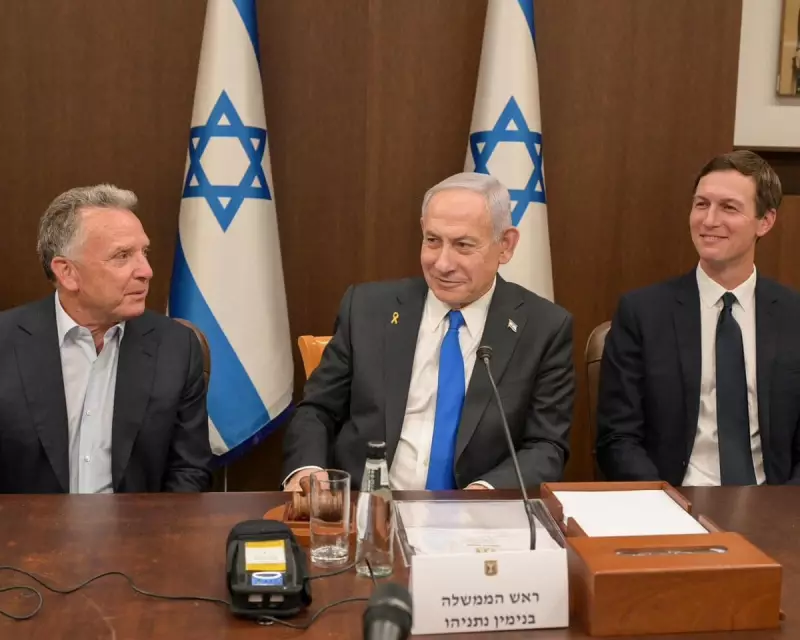
In a stunning development that has reshaped Middle Eastern diplomacy, the architects behind the recent Gaza ceasefire have been revealed as an unlikely alliance of political heavyweights and controversial figures from both sides of the Atlantic.
The Power Players Emerge
At the heart of the negotiations stood former British Prime Minister Tony Blair and Jared Kushner, son-in-law to former President Donald Trump, whose behind-the-scenes manoeuvring proved instrumental in brokering the fragile peace agreement. Their involvement signals a significant shift in how international diplomacy operates outside traditional governmental channels.
Blair's Quiet Diplomacy
Tony Blair, serving as the Quartet representative to the Middle East, has maintained a surprisingly low profile throughout the recent conflict. However, sources close to the negotiations confirm his office became a crucial backchannel, facilitating communication between warring parties when official diplomatic routes had completely collapsed.
"Blair's understanding of the region's complex dynamics and his relationships with key players on all sides made him uniquely positioned to bridge seemingly unbridgeable gaps," one senior diplomatic source revealed.
Kushner's Controversial Return
Perhaps more surprising is the re-emergence of Jared Kushner in Middle Eastern affairs. Despite being out of official government since the Trump administration ended, Kushner's relationships with Gulf states and Israeli leadership proved invaluable. His Abraham Accords experience provided a foundation upon which temporary peace could be built.
The Wider Cast of Characters
The negotiations involved a diverse group of influencers including:
- Qatari mediators who provided crucial financial and diplomatic leverage
- Egyptian intelligence officials acting as traditional intermediaries
- European Union representatives ensuring international backing
- UN special envoys coordinating humanitarian aspects
A New Model for Diplomacy?
This agreement raises fundamental questions about the future of international conflict resolution. The involvement of non-governmental figures with personal relationships and business interests in the region suggests a new, more flexible approach to diplomacy may be emerging.
"What we're witnessing is the privatisation of peace-making," commented Dr Eleanor Vance, Middle East analyst at Chatham House. "When traditional institutions fail, these personal networks and backchannels become the only way forward."
The Road Ahead
While the ceasefire represents a significant achievement, experts warn that the real challenge begins now. The agreement remains fragile, and the underlying issues that sparked the conflict remain largely unaddressed. The continued involvement of these key figures may prove essential in transitioning from temporary ceasefire to lasting peace.
The world now watches to see whether this unconventional diplomatic approach can deliver what decades of traditional negotiations have failed to achieve: a sustainable solution to one of the world's most intractable conflicts.






